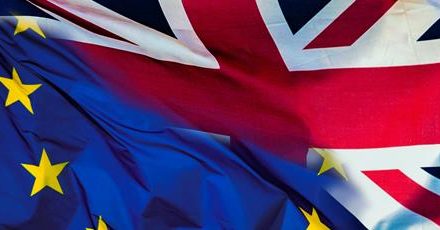Many people who travel internationally will have noted that there is a peculiar channel available to them called Euronews. It looks similar to the BBC World Service, or to CNN, but it often has no presenters and spends time simply showing footage with no explanation of what is going on. On top of that, there appears to be a larger focus on culture and art features. All wrapped in a bland corporate grey colour.
However, these differences have not stopped its growth. Boasting 7 million viewers a day, Euronews has expanded its global reach and now broadcasts in eleven languages. The station started when, during the first Gulf War, European broadcasters clubbed together to combat the dominance of CNN in providing information. Later, Britain's ITN bought 49% of the company, but later sold it. The current shareholders represent broadcasters from France, Greece, Cyprus, Malta, the Czech Republic, Italy, Belgium, Ireland, Portugal, Slovenia, Romania, Sweden and Finland, as well as broadcasters from Switzerland, Algeria, Tunisia, Egypt, Ukraine and Russia. The collective support of these companies, in addition to the European Union's tripling of its contributions to the station (2011 figures), have ensured that Euronews has avoided any financial problems.
The station states that it reduces the sensationalism that distorts viewer perceptions, and presents impartial news coverage, from "a European perspective", and in so doing, avoiding national viewpoints. As Europe consists of many different countries, nations and viewpoints, one would have to assume that this "European perspective" is the Commission's perspective. The supervisory board also includes broadcasters from Morocco, Turkey and Switzerland, as well as Russia's "Russia RTR" channel, a pro-Putin client channel of the Russian government.
It is clear, from a British governmental perspective, why Euronews would have been allowed to quietly develop. As a tool of general foreign policy, it could reach places which the BBC cannot, and often the 'European view' being promoted aligns with the UK view. The addition of Arabic, Turkish, Ukrainian and Russian broadcasting languages has enabled Euronews to penetrate into markets which are key for European Union soft-power and align with the EU neighbourhood policy's objectives. However, the question remains, as Euronews gets bigger, and as its influence grows, is this channel really bias free, or actually promoting the Commission's superstate agenda?
Firstly, by the channel's own admission, profiling research done of the typical viewer reveals that this person is a male, of average age 47, who is in a high-management position and internationally mobile. It does not take a doctorate in sociology to realise that this is principally the rich elite of European decision makers, the people who can take the European project forwards or reverse it.
Secondly, the Editorial Charter of Euronews explicitly states that, within the context of supplying balanced information, Euronews should "Aim at selecting, checking and disseminating information about the EU" and "Support and reflect EU cultural diversity". As these statements are highly open to interpretation, a study of how actual news is reported should be performed.
Subsequently, a look at news stories on the Euronews site under the European Affairs section during April 2012 reveals information about how the Commission is giving money to development projects and working with the UN, an article on how we all need to respect diversity in the workplace, in accordance with Commission rules, a story of how the European Parliament is going to investigate the CIA's usage of secret prisons in European countries, and an article on how you can come to the UK and get assistance in finding work, just as if you were a UK citizen. The only 'negative' article records how EU development aid has fallen in 2012, but this still reminds everyone that the EU as a whole gives more aid than any other global aid contributor. In general, articles focus on problems in member states, and solutions coming from the EU.
All of these news stories are of course at the same time as the Spanish banks are considering seeking bailouts because the Euro has helped destroy the Spanish economy, as it did with the Greek. Yet Euronews has all of this stored under the "Business" category, and there it is lightly explained with little reference to the one-size-fits-all Euro itself being the cause.
As a rival to CNN and the BBC, Euronews is making gains, but its role as a mouthpiece of the Commission must be carefully monitored to ensure freedom of speech is maintained in Europe and abroad.

